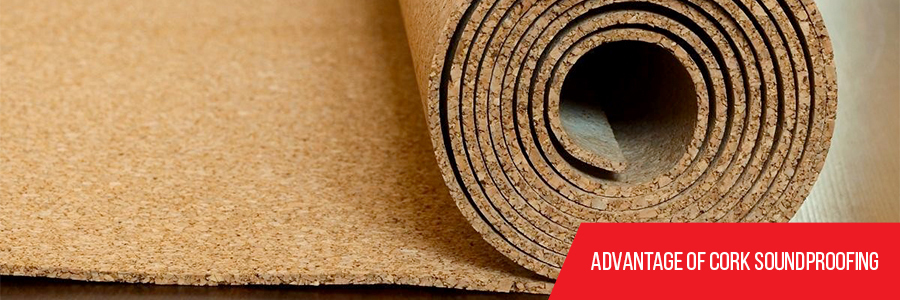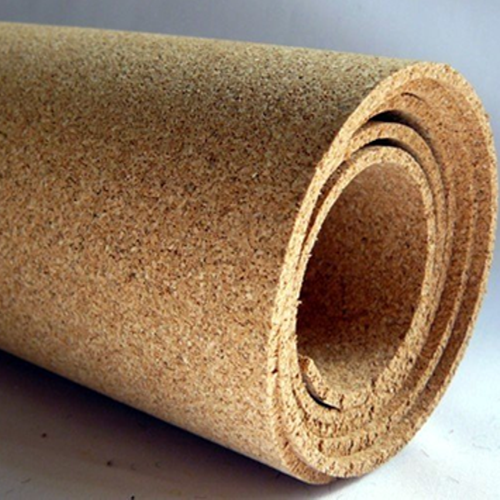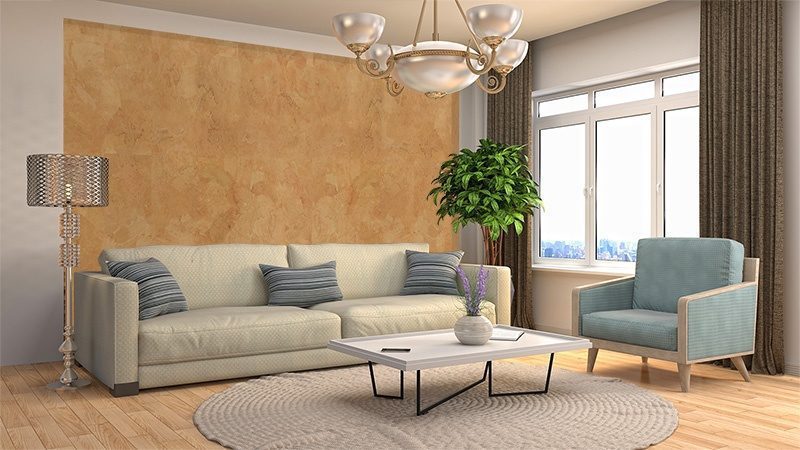Yes, cork is good for soundproofing. It absorbs sound well and reduces noise.
If you are dealing with noisy neighbors or trying to create a quiet home office, cork might be the solution you need. Cork is a natural material known for its sound-absorbing properties. It reduces noise by trapping sound waves and preventing them from bouncing around the room.
Plus, it is eco-friendly and easy to install. Whether you are looking to soundproof a single room or your entire house, using cork can make a noticeable difference. This blog will explore how cork works for soundproofing and why it could be the perfect choice for your needs. Let’s dive in and discover the benefits of using cork for a quieter living space.

Credit: www.aafloors.ca
Benefits Of Cork
Considering cork for soundproofing? Cork offers many benefits that make it a great choice. Its unique properties provide effective sound insulation, making it perfect for various applications. Let’s explore the key benefits of cork.
Natural Insulation
Cork has excellent insulating properties. It reduces noise by absorbing sound waves. This makes spaces quieter and more comfortable. Its cellular structure traps air, which helps in sound absorption. Cork also acts as a thermal insulator, keeping rooms warm in winter and cool in summer. This dual functionality is rare and valuable.
Sustainability
Cork is a sustainable material. It comes from the bark of cork oak trees. These trees do not need to be cut down. The bark regrows, making cork a renewable resource. Harvesting cork helps the environment by promoting tree growth. Cork production has a low carbon footprint, contributing to eco-friendly building practices. Using cork supports sustainable living and reduces environmental impact.

Credit: www.carpetfloorandmore.com
How Cork Absorbs Sound
Cork is an excellent material for soundproofing. Its unique structure and properties make it highly effective in absorbing sound. In this section, we will explore how cork absorbs sound, focusing on its cellular structure and interaction with sound waves.
Cellular Structure
The secret to cork’s sound absorption lies in its cellular structure. Cork is made up of millions of tiny air-filled cells. These cells are arranged in a honeycomb pattern. This structure traps air within the material.
The air pockets in cork act as natural sound dampeners. When sound waves hit cork, the air pockets absorb and disperse the energy. This reduces the sound that passes through the cork.
Sound Wave Interaction
Cork interacts with sound waves in a unique way. Sound waves are vibrations that travel through the air. When they hit cork, the material’s structure disrupts these vibrations.
This disruption occurs because cork’s cells compress and expand. The energy from the sound waves is absorbed by the cells. This reduces the sound that is transmitted through the cork.
Furthermore, cork is a dense material. Its density helps in blocking low-frequency sounds. These are the hardest to block. This makes cork effective for soundproofing in various settings.
In summary, cork’s cellular structure and interaction with sound waves make it an excellent soundproofing material. Its ability to absorb and disperse sound energy is unmatched.
Applications In Homes
Cork is excellent for soundproofing homes. Its natural structure absorbs sound effectively. Plus, it’s eco-friendly and easy to install.
Cork is a versatile material. It offers excellent soundproofing for homes. Cork reduces noise and improves comfort.Flooring Solutions
Cork flooring is a popular choice. It absorbs sound and reduces echoes. This makes it ideal for living rooms and bedrooms. Cork flooring is also comfortable to walk on. It provides a warm and soft surface underfoot. Installing cork flooring is easy. It comes in tiles and planks. Both options are straightforward to install. Cork flooring also has a natural, attractive look. It adds beauty to any room.Wall Panels
Cork wall panels are effective for soundproofing. They absorb sound and reduce noise transmission. This is perfect for home offices and media rooms. Cork panels are easy to install. They can be glued or nailed to walls. Cork wall panels come in various designs. You can choose from different colors and patterns. This allows you to match your home decor. Cork panels are also eco-friendly. They are made from renewable resources. This makes them a sustainable choice for your home. “`Commercial Uses
Cork is a versatile material with many commercial applications. Its unique properties make it ideal for soundproofing in various settings. Below, we explore its use in office spaces and recording studios.
Office Spaces
In office environments, noise control is essential for productivity. Cork panels and flooring can help reduce noise levels. They absorb sound and prevent it from bouncing off hard surfaces.
- Quiet Meetings: Cork walls in meeting rooms help maintain privacy.
- Open Plan Solutions: Cork dividers can create quiet zones in open offices.
- Comfort: Cork floors are soft and reduce footstep noise.
These benefits make cork a preferred choice for modern office designs.
Recording Studios
Recording studios require high levels of sound isolation. Cork can significantly improve the acoustics. It prevents external noise from entering and internal sounds from escaping.
- Wall Panels: Cork panels on walls enhance sound quality.
- Ceiling Tiles: Cork tiles on ceilings absorb unwanted noise.
- Flooring: Cork floors provide a quiet base for recording.
Using cork in recording studios ensures clear and high-quality sound recordings. Its natural properties make it an excellent choice for professional environments.
Installation Methods
Installing cork for soundproofing can be done in different ways. The method you choose depends on your skill level and budget. This section will guide you through DIY installation and professional assistance. Each method has its own benefits and considerations.
Diy Installation
DIY installation is a popular choice for those on a budget. Cork tiles and sheets are easy to handle. You can cut them to size with a utility knife. Use adhesive to attach the cork to walls or floors. Ensure the surface is clean and dry before starting. Follow the manufacturer’s instructions for best results. This method allows for creativity and personal touch. It’s a rewarding project for those who enjoy hands-on work.
Professional Assistance
Professional assistance is ideal for larger projects. Experts have the tools and experience to install cork efficiently. They ensure proper alignment and secure attachment. This option saves time and guarantees a high-quality finish. Professionals can also advise on the best type of cork for your needs. While it may cost more, the investment is worth it for a flawless result. Hiring professionals also reduces the risk of mistakes or damage.
Comparing Cork With Other Materials
Cork is a popular choice for soundproofing. But how does it compare with other materials? Each material has unique qualities and benefits for soundproofing. Let’s explore how cork stacks up against foam panels and fiberglass insulation.
Foam Panels
Foam panels are often used for soundproofing rooms. They are lightweight and easy to install. Foam panels work by absorbing sound waves. They reduce echoes and noise in a room. Cork also absorbs sound, but it offers better insulation. Cork is more effective at blocking low-frequency noise. Foam panels may not be as durable as cork. Cork is more sustainable and environmentally friendly.
Fiberglass Insulation
Fiberglass insulation is another common soundproofing material. It is often used in walls and ceilings. Fiberglass insulation works by trapping sound waves. This reduces noise from outside and between rooms. Cork also traps sound but offers better thermal insulation. Fiberglass can cause irritation and needs careful handling. Cork is safe and non-toxic. It is also easier to install than fiberglass.
Cost And Availability
Cork is a popular material for soundproofing due to its natural properties. But many wonder about its cost and availability. Understanding these factors can help you decide if cork is the right choice for your soundproofing needs.
Budget Considerations
Cork is usually more affordable than other soundproofing materials. Its cost varies based on the thickness and quality. Basic cork tiles are cheaper, but thicker tiles offer better soundproofing. You can expect to spend more on high-quality cork.
Considering your budget is crucial. If you need extensive soundproofing, costs can add up. But even then, cork remains a budget-friendly option. It’s important to compare prices and quality.
Where To Buy
Cork is widely available in many stores. You can find it at home improvement stores, both online and offline. Major retailers like Home Depot and Lowe’s offer cork tiles and sheets.
Specialty stores also sell cork. These stores often provide a wider range of thicknesses and styles. Online marketplaces like Amazon provide numerous choices, too. Be sure to read reviews and check ratings before buying.
In summary, cork is easy to find and fits various budgets. Its availability in many stores makes it a convenient choice for soundproofing.

Credit: www.cancork.com
Maintenance And Longevity
Cork is a popular choice for soundproofing due to its excellent acoustic properties. But how well does it hold up over time? Let’s explore the maintenance and longevity of cork soundproofing materials.
Cleaning Tips
Maintaining cork soundproofing materials is straightforward. Regular cleaning helps maintain their appearance and effectiveness. Here are some tips to keep your cork soundproofing in top shape:
- Dust cork surfaces with a soft cloth or vacuum cleaner.
- Use a damp cloth with mild soap for deeper cleaning.
- Avoid using harsh chemicals or abrasive cleaners.
- Address spills immediately to prevent stains.
Durability
Cork is known for its durability and can last many years if properly maintained. Here are some factors that contribute to its longevity:
- Cork is naturally resistant to moisture, mold, and mildew.
- Its elastic properties help it withstand wear and tear.
- Cork can recover from compression, maintaining its shape and effectiveness.
- With proper care, cork can remain effective for decades.
Overall, cork’s low maintenance requirements and long-lasting nature make it an excellent choice for soundproofing. By following these simple cleaning tips and understanding its durability, you can ensure your cork soundproofing remains effective for years to come.
Frequently Asked Questions
What Makes Cork Good For Soundproofing?
Cork’s cellular structure absorbs sound vibrations, reducing noise effectively. Its natural properties make it a great insulator.
How Effective Is Cork For Soundproofing?
Cork is very effective for soundproofing. It dampens sound by absorbing vibrations, providing a quieter environment.
Is Cork Better Than Foam For Soundproofing?
Cork is often better than foam. It provides better acoustic insulation and is more durable and eco-friendly.
Can Cork Be Used On Walls For Soundproofing?
Yes, cork can be applied to walls. It’s a popular choice for reducing noise in homes and offices.
Conclusion
Cork can be a good choice for soundproofing. It reduces noise effectively. Cork is also eco-friendly and easy to install. Its natural properties make it a solid option. Consider cork for a quieter, more peaceful space. It works well in homes and offices.
Cork’s versatility adds to its appeal. Try it and notice the difference.

